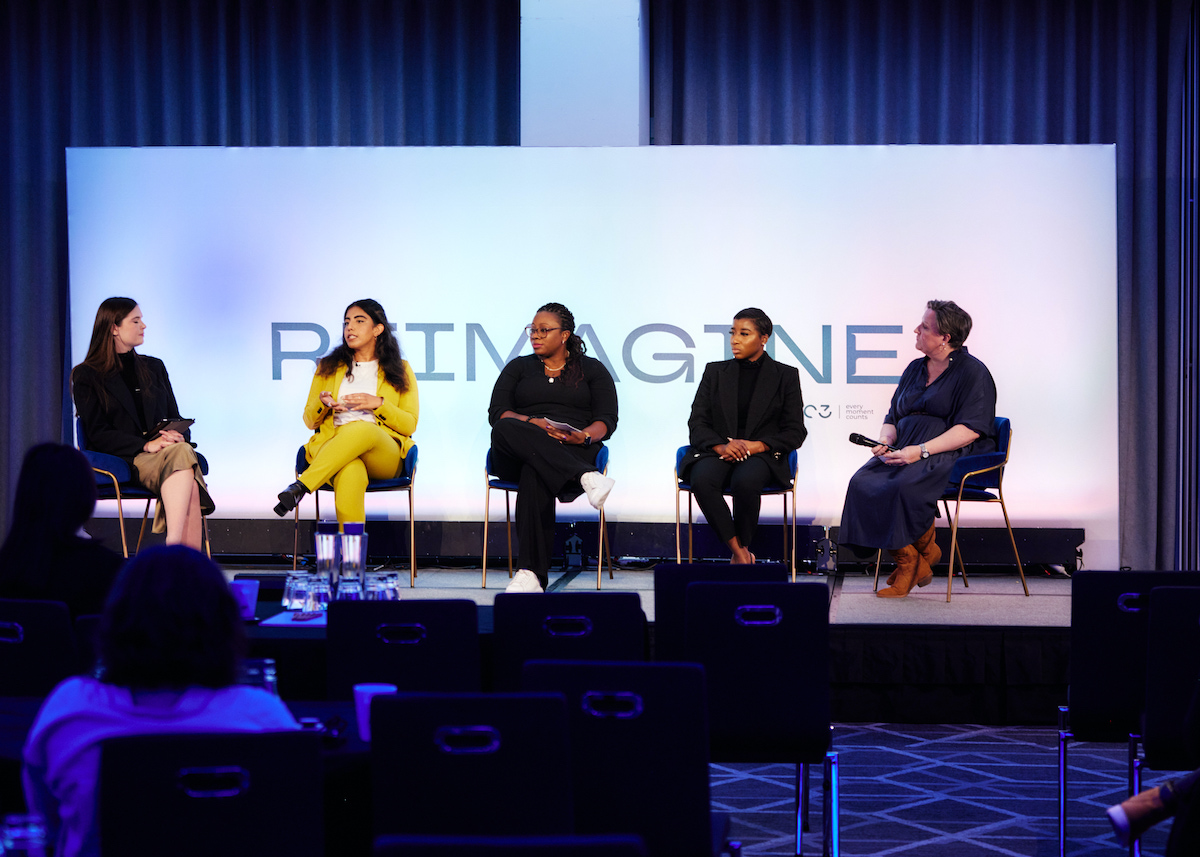Social sustainability, including DE&I and accessibility, is equally as important as environmental sustainability and should be given the same consideration by event planners. That was one of the key takeaways from emc3’s recent Reimagine event in London.
The event, themed around “events as a force for good”, included several sessions around the topic, including a panel session on ‘Creating your social sustainability strategy’, featuring Linda Bekoe (CEO of APLBC), Narmeen Kamran (Managing Director of Desert Island Events), Lou Kiwanuka (Founder of Ops Nest) Benedicta Asanta (Founder of 101 events).
“Sustainability goes beyond just looking at the climate aspect. When it comes to event sustainability, I feel like the people aspect has been neglected,” said Asanta. Bekoe agreed, adding: “Planet is important, but people are at the heart of everything.”
Kiwanuka recommends sense checking against the UN Sustainable Development Goals (SDGs), which include goals related to both people and planet. “It’s important to make sure that what whatever sustainable effort we are making isn’t to the detriment of one of the other SDGs. To me that’s what social sustainability is all. It’s about the balance of it all. For example, there is no point having a green initiative but at the same time closing the door on a huge number of people from entering your event.”
Bekoe believes that events can be a huge force for good when social sustainability is considered. “We know what happens when diverse people meet. There is always a lot of creativity. So, when we are designing events, we need to look at the panellists and the content and make sure it’s diverse as possible. If people see themselves represented in the speakers, they are more like to come.”
She added that planners often focus on physical accessibility, but it’s also important to consider hidden disabilities such as neurodiversity. “I’ve been doing a lot of work on neurodiversity in my role at GBTA. It’s phenomenal how neurodiverse people think and work and what content is relevant to them. When we are putting together events and content, we need to think about all this so that everyone is engaged.”
The panel discussed how important it is to find out who is coming to your event and what their needs are – don’t be afraid to ask the question and don’t make assumptions. Add a question to the pre-registration questionnaire asking delegates if they have any specific needs that need to be catered for.
Kiwanuka suggests considering all the people who might not feel welcome at an event, for example, introverted people, older people, pregnant people, and talk to these individuals to find out what their barriers are to attending so you can explore solutions.
Finally, measurement is key. “You can’t change what you don’t measure so first up, you need a benchmark. You need to know currently how socially sustainable your events are and get that initial data because without that you can’t implement any change,” said Kamran.
“Data is so important. This can be in the form of surveys and feedback. Have a look at social media and see what your attendees are saying about your event. You need to analyse what all that shows you and read into it. Does it say we’re doing well on accessibility but we in terms of diversity our events are still lacking. In which case, what can you do to improve that. That is your guide, because then you can understand where you currently are, and set objectives for where you want to be.”

